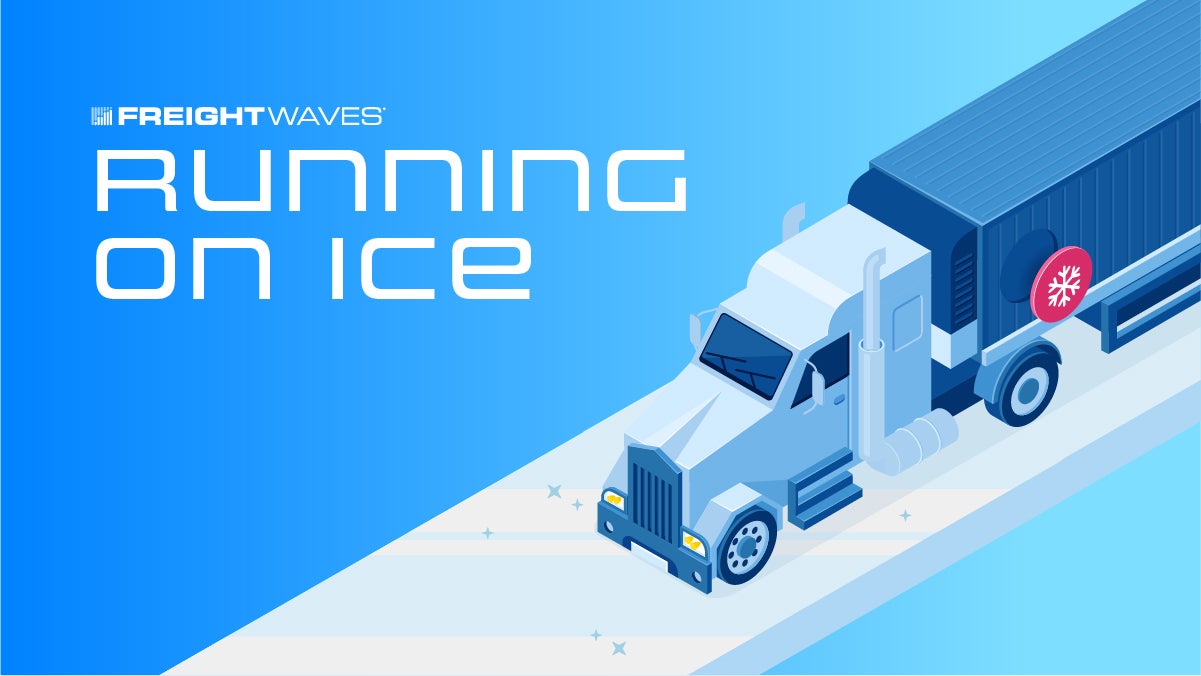Hello, and welcome to the coolest community in freight!
You know what’s cool? This year’s Future of Freight Festival. It takes place Nov. 19-21 in Chattanooga, Tennessee. What makes it so cool is the beautiful fall foliage, the industry leader talks and the fun. Sure, all conferences say they’re the fun ones, but this one actually is. Not to mention, the Chattanooga Aquarium is quite chilly for the penguins. This year, subscribers to Running on Ice get a promo code exclusive to us! You can register with this link or use the code F3ROI24 at checkout for a discount. Spoiler alert: It is the best deal on tickets you can get.
All thawed out
The pharmaceutical shipping world is cutting its packaging down to size. Thermo Fisher Scientific has introduced more sustainable packaging for 125,000 of its Invitrogen antibodies. This change is taking the packing process from traditional cold chain packaging to ambient temperature shipping from distribution centers to customers. That drastically reduces the excess packaging and waste the company generates.
By swapping packaging to a recyclable paper option, the company expects to remove more than 216,000 pounds of paper and 440,000 pounds of gel packs annually from its supply chain.
“Our ambient shipping initiative is a response to our customers’ expectations and demonstrates our commitment to sustainability and innovation,” Ellie Mahjubi, vice president of protein cell analysis at Thermo Fisher Scientific, said in a Supply & Demand Chain Executive article. “We are proud to launch this critical change, delivering on Thermo Fisher’s Mission to enable our customers to make the world healthier, cleaner and safer. We believe this transition will have a considerable impact on the global research community by reducing packaging waste and transport emissions without compromising the quality of our antibodies.”
Temperature checks
Hurricane Milton came through and wreaked absolute havoc on the west coast of Florida. Millions are left without power and now the cleanup process begins. With it taking a long time for power to be restored to the area, it leaves perishable commodity shippers in a tight spot.
Damage from Milton is less than predicted but still sizable, though the total cost is yet to be tallied, and the impact on the supply chain is unclear. According to the Federal Emergency Management Agency, “43% of SMBs and mid-size companies do not reopen after a disaster, and another 29% fail within 2 years.”
That takes a significant amount of freight out of the market. Millions are without power and depending on the area there could be flooding or additional storm damage. Cold storage warehouses could be in a massive bind if their cooling systems have failed and generators haven’t kept up.
FreightWaves’ Brinley Hineman writes, “It is unclear how Milton could impact food distribution in Florida. This will depend on access, power and fuel. … Companies won’t know if their distribution hubs are damaged until they can access them.”
Most of the Florida ports are resuming operations Friday but some are expected to stay closed for a few more days. The biggest port to wait on will be Port Tampa Bay as it handles 43% of the fuel used in the state – fuel that will be much needed to refill supplies depleted by evacuees.
Food and drug
In slightly more uplifting news, there is a new way to consume caffeine: frozen. The company F’real, known in most convenience stores for blendable smoothies and milkshakes, has introduced Energy Freeze, a blendable energy drink that has 100 milligrams of caffeine. This splits the difference in caffeine content from a cup of coffee (95mg) and a can of Red Bull (111mg).
In a Food Engineering article, a company spokeswoman calls the Energy Freeze “a fun, customizable and refreshing treat that empowers our consumers to stay vibrant and energized on their own terms. Whether seeking an extra boost to stay awake, combat fatigue or improve focus and alertness, Energy Freeze offers a delicious and affordable beverage that allows them to blend boldly and seize the day.”
As of now, the frozen treat only comes in two flavors: strawberry watermelon and blue raspberry. I’m not up to speed on all things caffeine but this has to be a first. So anyone who tries it, I’m deeply curious as to what it’s like.
Cold chain lanes
This week’s market under a microscope is where cold things are heating up: Atlanta. Both reefer outbound tender volumes and reefer outbound tender rejections are on the rise. The former have risen 11.13% week over week. Reefer rejections, on the other hand, have exploded from 8.23% to 13.19% in the past seven days for an increase of 441 basis points.
Atlanta is the largest market surrounding the devastation from Hurricane Helene and is the closest to support recovery efforts in Florida from Hurricane Milton. Given that this sharp upward trend is quite atypical for Atlanta for this time of the year, it’s safe to say that this is a combination of disaster recovery and port recovery efforts from the International Longshoremen’s Association strike. Spot rates in Atlanta will start to rise over the next week as the market catches up to the sharp uptick in volumes and rejections. Rates will be high compared to historic averages.
Is SONAR for you? Check it out with a demo!
Shelf life
Inside UPS’ push to double its healthcare logistics business
Principal pays $54.6M for Kissimmee cold storage facility
From farm to future: AI automation for the food supply chain
Air freight seasons for perishables are changing
Quick freeze tech gaining popularity in Japan’s restaurant industry
Wanna chat in the cooler? Shoot me an email with comments, questions or story ideas at moconnell@freightwaves.com.
See you on the internet.
Mary
If this newsletter was forwarded to you, you must be pretty chill. Join the coolest community in freight and subscribe for more at freightwaves.com/subscribe.

